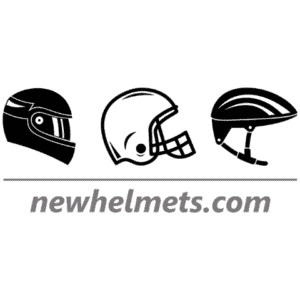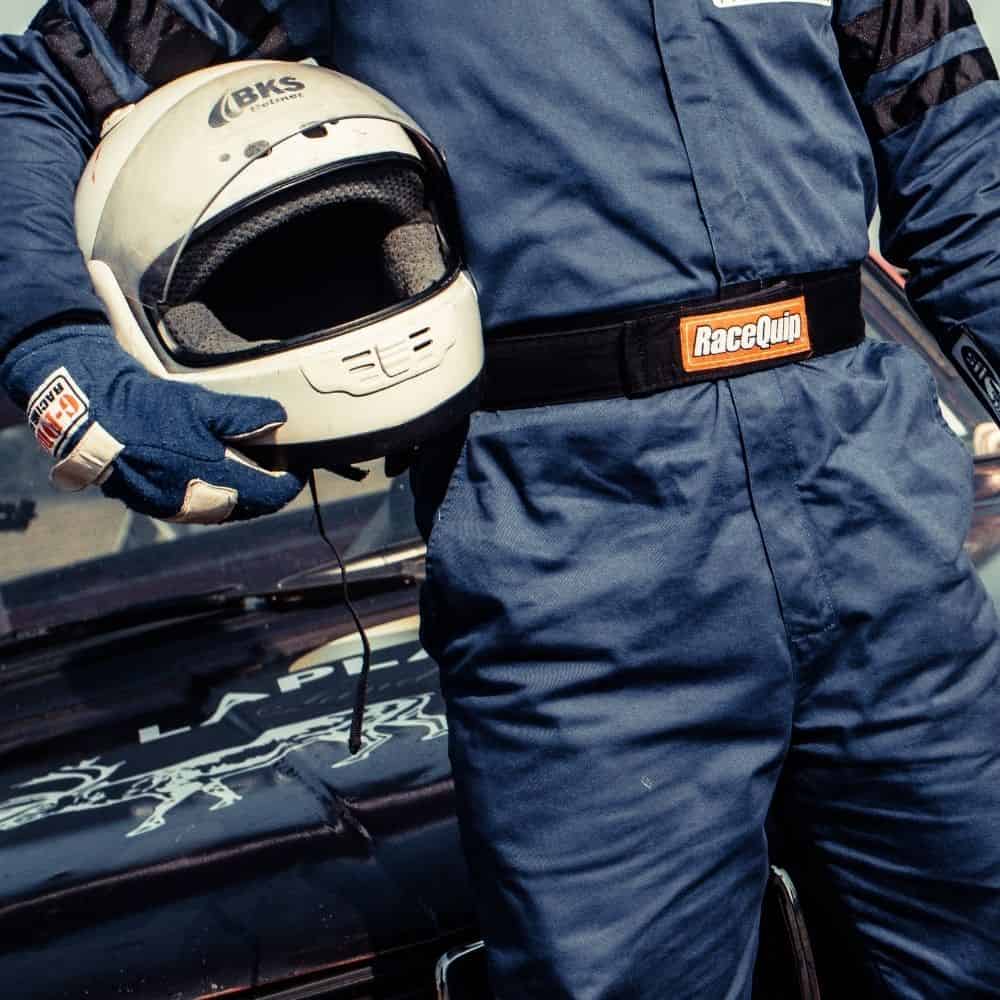So, you want to know if you can wear a helmet in the car? Is wearing a helmet in the car legal, and is it even a good idea? Here is the answer.
There is no statute or law to say you cannot wear a helmet when driving a car on the road. However, it is essential to note that it does not make it legal either, and there are some safety concerns that you should be aware of before driving a car with any type of helmet on.
At first, some might think this is a silly question, but looking around the internet on various forums, people genuinely want to know if it is a good idea. Typically, they are concerned by the number of traumatic brain injuries in accidents in cars.
It is an intriguing topic and my quest for answers started at the Snell Foundation website, an American not-for-profit organization dedicated to research, education, and testing of helmets. They are responsible for developing and upholding the famous Snell safety standards.
Their website contains the safety standards and regulations of helmets worn in motorcycling and motorsports. At first glance, there is a lack of rules and standards pertaining to a helmet that is deemed acceptable for normal road users who drive a car.
I emailed Snell to get their opinion, and their director of education kindly responded.
“I am not aware of any standard or regulation regarding helmet use in a car on a public road in any country. I asked our chief engineer Ed Becker, and he was not aware of any either.”
Hong Zhang, Director of Education, Snell Foundation.
He went on,
“Those of us at Snell are helmet believers, but none of us use a helmet inside a commuter car. I imagine that the extra mass of the helmet plus the discomfort of body posture away from the headrest, designed without consideration of helmet use, might be reason enough for people not to use a helmet for regular driving. From a standard and safety point of view, at least the pros and cons of helmet use on a restrained body without a HANS system (Head and Neck System) in regular traffic should be examined if anyone would consider recommending such use.”
So, currently, Snell would not recommend wearing a helmet in a car until further testing has been carried out, and until a manufacturer develops a helmet that accommodates a headrest.
So, while no rule bars us from wearing a helmet, let’s look at other problems that could occur.
Field of vision issues
Wearing a helmet inside a car must alter the way we drive and slow down our reaction times to threats and other obstacles. Side pillars and a car roof, coupled with a full-face helmet, must obstruct vision. Of course, I am referring to wearing a crash helmet because it seems likely that this wouldn’t be such a problem for a simple cycling helmet or hard hat. On the other hand I would argue that if a racing driver can cope traveling at speeds over 200mph, then I could manage in my Ford Kuga while driving about town.
Referring to the standards for helmets for use in competitive motorsports SA2020, the foundation performs tests to measure a helmet’s visual field.
Their standard states the following, “The helmet must provide a minimum range of vision appropriate to its use as measured on standard head forms. Most Snell certified helmets will meet the requirements stated in this Standard and are considered appropriate for street use. However, the Foundation may also certify headgear with much more restricted visual fields for use only in carefully controlled competitive environments. Such headgear will include warning labels identifying them as appropriate only for certain activities. Be absolutely certain that your helmet is appropriate for your intended uses. Furthermore, since the range of vision you obtain may vary considerably from our measurement, be absolutely certain that the helmet and face shield permit you adequate vision.”
So, they mention that visual clearance can differ from person to person, depending on head size. Teams in motorsports have ample cash to test and build custom equipment for their drivers, and I am sure they try to adjust their helmets to obtain an optimum field of vision. So, in conclusion, as a regular road user, you may be at a disadvantage from the start.
The responsibility is firmly placed on the user to check they can see correctly and the lack of testing for helmets to be used in cars on the road means it is not currently a good idea to wear a helmet inside a car.
Will the police stop me?
If you intend to wear a crash helmet inside a regular car while on your way to work, with your visor up and sipping coffee, you can guarantee the police will want to have a word with you. By the letter of the law, they have no reason to stop you, but I think you can agree that you may look a bit odd. That will undoubtedly lead to the police stopping and questioning you about your decision.
But what if I’m worried about bashing my head in a car accident? If there is no legal precedent making it illegal to wear a helmet in a commuter car, then should we wear one for our own safety?
Should we all wear a helmet in the car?
According to the centers for disease control and prevention in 2014, hospital visits resulting in a diagnosis of traumatic brain injury due to motor vehicle collisions had risen by 24% since 2006. That accounted for around 106 people per 100,000 population. However, deaths have seen a significant reduction over the same period, with only 3 people dying per 100,000 population.
Cars are safer today than ever before, but accidents still happen. New York Governor Andrew Cuomo had an interesting answer when asked whether he thinks motorists should wear helmets, considering that 650 people died of head trauma in cars in 2019. He is campaigning for cleaner streets and advocating the use of e-scooters and other green initiatives to get around New York City. He did not dismiss the question which was asked by a journalist from the NYC Streets Blog. Instead, he pondered on it and asked to see the data before he could comment.
You may feel utterly ridiculous, wearing a helmet in a car, considering you are wrapped in steel and surrounded by multiple airbags, but the idea is not as far fetched as one might think. The 1980s saw Davies Craig, an Australian helmet manufacturer, propose car helmets for all motor car drivers and passengers. It is hard to know if it was a serious endeavor or a complete joke, especially when you read the recommended instructions.
To be worn:-
- After consuming any alcohol.
- When other drivers are likely to have consumed alcohol, especially 4:00 PM to 2:00 AM Fridays and Saturdays.
- After dark and during twilight.
- In the rain or when the roads are wet.
- During long trips when you may become tired.
- Within five kilometers of your home or destination.
- Christmas, Easter, and long weekends.
- If you are aged under 25 or over 60.
It is important to note that at that time, it was still legal to drink and drive. I am happy we have moved on from that, aren’t you?
So, you may wish to wear a helmet in the car or not. At this point, the jury is still out. It is clear that there is room for improvement regarding car safety, and there is always a need to drive instances of concussion and traumatic brain injury down. Maybe the invention of the car helmet is just around the corner, and if so, I will be sure to check it out for you.
Are you planning to travel abroad anytime soon and are you struggling to figure out if it’s a good idea to take your helmet with you on the plane. Read my helpful article here to find out the best way to fly with a helmet.
If this is your first visit to my blog, welcome and I hope you have enjoyed it. I discuss all aspects of owning or buying new helmets. From crash helmets to the humble hard hat, this blog has the answers. I talk about the best brands, safety ratings, value, and maintenance. Please, choose another article if you would like to know more.
My name is Matt, and I am a helmet sports enthusiast. I love climbing, motorcycling, kayaking, amongst other things. But no matter what sport you love, please stay safe.


